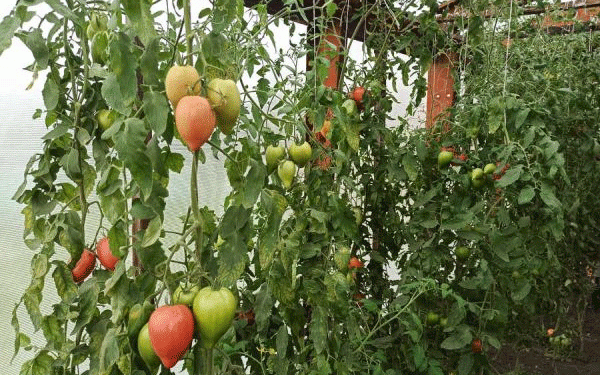The city of Minusinsk, located near the Khakassia region, is gearing up for an ambitious agricultural project aimed at enhancing local food production. Dmitry Merkulov, the head of Minusinsk, recently met with the management of the municipal enterprise “Market Zarechny” to discuss the construction of a greenhouse complex specifically for growing Minusinsk tomatoes.
While specific details about the project were not disclosed, the intention behind this initiative is clear: to cultivate high-quality local tomatoes and provide fresh produce to the community. This aligns with broader agricultural trends in the region, which is experiencing a growing interest in greenhouse farming due to its potential to yield higher outputs in a controlled environment.
According to Krasstat, as of 2022, the area devoted to tomato cultivation in the Krasnoyarsk Krai spans 738 hectares, while the neighboring Khakassia region accounts for only 241 hectares. In Tuva, the situation is even less promising, with just 26 hectares dedicated to tomato farming. In 2021, Krasnoyarsk Krai’s agricultural producers harvested 24,300 tons of tomatoes, while Khakassia managed to yield 7,700 tons, and Tuva only reached 387 tons.
The establishment of a greenhouse in Minusinsk could significantly impact local agriculture. Greenhouses provide a controlled environment that allows for year-round cultivation, which is particularly advantageous in areas with harsh climates or shorter growing seasons. This method can lead to enhanced crop quality, increased yields, and more consistent production, making it easier for local farmers to meet market demands.
Furthermore, as consumer preferences shift toward locally sourced and fresh produce, the potential market for locally grown tomatoes in Minusinsk is promising. By reducing reliance on imported goods and fostering local agricultural initiatives, the greenhouse complex could serve as a catalyst for economic growth in the region, providing jobs and supporting local farmers.
The proposed greenhouse initiative in Minusinsk represents an important step toward improving agricultural sustainability and food security in the region. By focusing on tomato cultivation, the local government aims to capitalize on the growing demand for fresh produce while also supporting the community’s economic development.










